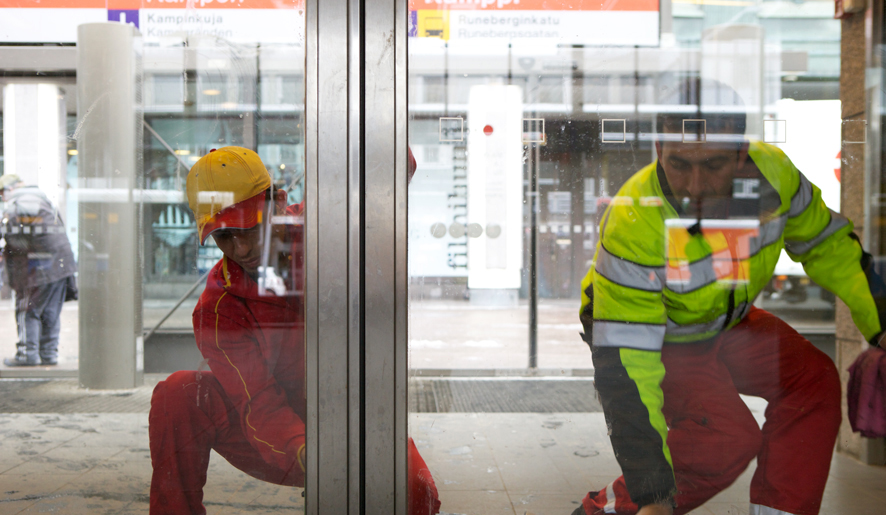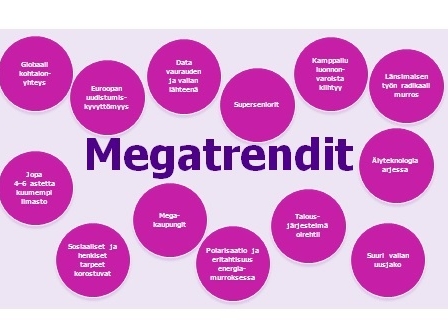Discussions on combating climate change often focus on the economic costs. Certain parties have exploited the economic crisis, depicting climate change mitigation and environmental protection as destroyers of jobs within Finnish industry. Talk of this kind ignores the genuine reasons for job losses, such as the global redistribution of industry, whose effects were temporarily hidden by the bubble economy of the 2000s. Finland’s industrial structure is undergoing a transition which is unconnected to climate change. For example, electric light technology is increasingly seeing moves towards replacing old filament bulbs with LED lights. This transition is already being exploited by many small and medium-sized enterprises (SMEs) in the Finnish LED lighting sector, leading to the creation of hundreds of new jobs (Lovio, 2013).
We can obtain a clearer view of the well-being “dividends” generated by the fight against climate change and the new energy policy by turning the issue on its head: how might Finland benefit from being part of the global effort to combat climate change? A story hit the headlines a few weeks ago, according to which a working group of professors had published a report pointing out that Finland spent 8.5 billion euros, or 4 per cent of GDP, on imported energy in 2012 (Halme et al., 2014). The working group also estimated that the transition to domestic and renewable energy sources would generate 30 000 new jobs in Finland by 2020.
Viewed from this reverse perspective, a transition to a more “local” economy could reduce the ill effects of the global redistribution of production. For instance, one of the participants in the Carbon Neutral Municipalities project (HINKU), the Finnish city of Uusikaupunki, has reduced its greenhouse gas emissions by at least 16 per cent while creating hundreds of new jobs. In the best-case scenario, building an economy based on localism could go beyond securing the country’s energy supply. As the balance of industrial power shifts to Asia, a circular economy (recycling, repairing, sharing and renting) would help to increase the share of added value remaining in the domestic market and small communities. Initial experiences of the HINKU project also suggest that projects of this kind could lead to positive feedback loops. As cities and municipalities became more attractive and are “up-skilled”, residents would feel more committed to their home towns and cities.
New capital is required for energy-related investments. In this respect, small-scale self-production of energy based on renewable resources is a key issue, because ordinary citizens tend to seek a smaller return on their investments than large corporations. In Europe, small-scale private, corporate or community projects with a production capacity of less than one megawatt account for roughly one third of investments in renewable energy. Of course, when private individuals invest in energy production, consumption of power from the grid reduces. However, demand is also created elsewhere. For example, Gaia Consulting has calculated that if the 320 000 houses that currently use oil and electricity for heating switched to ground source heat pumps, there would be a positive effect on employment amounting to 1 500 person-years.
The past year has seen the climate change debate take a strange turn: commentary on the German energy transition, the shale gas boom in the US and the decline of industrial cities has been characterised by misleading generalisations or straightforward falsehoods. Some of these misconceptions have been corrected elsewhere on Sitra’s website. Everyone with a mind of their own should seek out the facts (see, for example, Hakkarainen, 2013). Failing this, people should at least give thought to what all the bluster by climate change deniers is designed to conceal. Is the fight against climate change the real cause of job losses and greater inequality?
Sources (all in Finnish)
Gaia Consulting (2013), “Maalämpöpumppuinvestointien alue- ja kansantaloudellinen tarkastelu”.
Hakkarainen P. (2013), “Energiakäänne – mistä Saksan energiapolitiikan mullistuksessa on kysymys?”, Helsinki: Kalevi Sorsa Foundation, Impulses, May 2013.
Halme M. et al. (2014), “Kasvua ja työllisyyttä uudella energiapolitiikalla“.
Lovio R. (2014), “Cleantech turvaa tulevaisuuden”, Talous & yhteiskunta April 2013, 28-33.




















Recommended